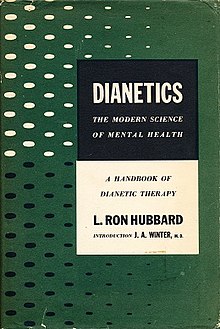The Basic Principles Of Dianetics
The Basic Principles Of Dianetics
Blog Article
The Best Guide To Dianetics
Table of Contents10 Easy Facts About Dianetics ExplainedThe smart Trick of Dianetics That Nobody is Talking AboutIndicators on Dianetics You Should KnowRumored Buzz on Dianetics
I couldn't ever before not intend to obtain anything that enters your mind for you- if it was or else, I would not be sitting below with you, doing this. I not just might never have a problem, or not wish to listen to something that enters your mind for you, however I'm entirely eager to understand every idea, every idea, every image or sensation that arises or shows up for you- do not ever before think or else, and if for one reason or another you do, please simply let me understand! In some cases, you might have a thought, and photo, idea or event turn up that does not seem to answer the concern, or relate to it, yet nevertheless, constantly do inform me about it, and as we continue, the relevance will emerge for you.This is inherent in the basis of processing, and the topic of this conversation: the standard roles of the therapist and the client: The basic function of the therapist is, in contrast to "conventional training", not to manage, which indicates to enforce and/or hinder, but to instead work from the basis of EMPOWERING THE CLIENT.

Getting My Dianetics To Work
John Mcmasters shared this fundamental reality splendidly well in among his lectures on Power handling, wherein he explains exactly how he was asked what this "special propensity" was that he had for offering such great sessions; he needed to think about that for a minute, and spotted that it was what he wasn't doing, along with what he was doing: he wasn't examining, judging, computer, or as a matter of fact, generating any type of thoughts, let alone spoken expressions, after offering the command and while waiting on the computer to complete their solution to their satisfaction; he was, just and just, existing with the computer, and completely interested.
The duty of the counselor, showed; that was his "special propensity". I have had my own experience which educated me this well, very beforehand in the game. In 1982, having actually lately completed my training and teaching fellowship on New Period Dianetics, I was running this on a COMPUTER, and there was a point in the session where (being a little bit wet behind the ears not yet having many hours under my belt as a specialist auditor) the PC appeared to be "taking too long" to reveal anything verbally after I gave him a command.
This secret became one of the most beneficial payment that John ever made to the subject of treatment or auditing (Dianetics). In my modest opinion, it is the best contribution that anyone has ever before made to these view publisher site subjectsthe application is totally non-judgemental, non-evaluative, and devoid of any kind of recommendation, suggestions or opinion.no preconditioned agenda for people, or 'levels' that they have to do
In Scientology we prided ourselves on not evaluating for individuals. All that really indicated was that see this site the auditor did not Vocally review for the PC in session.
Dianetics for Beginners

Anybody that had ever seen John audit can not aid yet observe an one-of-a-kind quality in his auditing."The client's basic function is to be there with the purpose of moving in the direction of their spiritual goals, and to openly and completely share and experience whatever materializes for them in responding to the inquiries and implementing the guidelines in the handling.
This is something to process as needed. But additionally, people frequently have previous experience and/or brainwashing in auditing/processing which, somehow, and to some extent, actually misleads them into mindsets, ideas and habits patterns that prevent the complete understanding of these roles, and so they will often tend to inhibit the expressing of what enters your mind, as in the instances given over. * The first, and possibly primary instances of mis-indoctrination leading to much less than totally smooth and effective sessions, can be found in certain elements of the training regimens, or "TR's":"TR's" are frequently a person's initial, or at the very least early, experience in Scientology, and while I will certainly take place to discuss what I view as the flaws in concept and method, nonetheless, often tend to be considerably therapeutic, done as they are offered (Hubbard firmly insists that "TR's are not processing, they are training", yet factually, they are both processing AND training)
Alan Walter made comparable observations, and improved these with his "Visibility Processes". There is no "flunking", and no denial of the truth of this being processing. The focus, as it needs to be, gets on experiencing the next various other individual's presence. All the manifestations which get a "fail" in doing "TR-0" are simply the being's efforts to withstand the other individual's existence, and rather than being pestered and pestered with "Flunk", which enforces "failing!" on the being, one merely requires to be urged to "stick their feet in the water a little deeper", to increasingly refurbish their capability and willingness to fully share and experience "being below", or "presence", with others.
3 Easy Facts About Dianetics Shown

Report this page